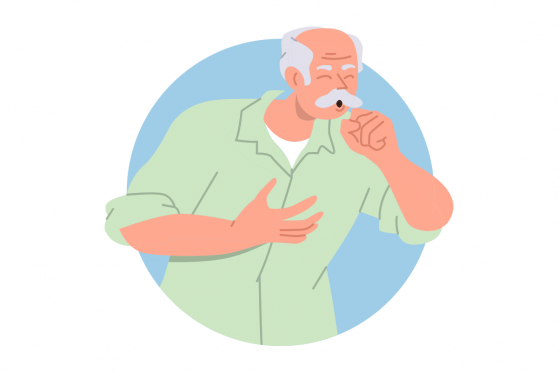Your Guide To Staying Healthy This Flu Season
Don’t let the flu — and the fever, body aches, and fatigue that can come with it — hold you back. Use these expert tips to keep you and your loved ones healthy.

No two flu seasons are alike. You see, the strains of the flu virus are different every year. So, medical experts develop new vaccines each year to help protect against the flu strains that are most likely to get you sick.
While the flu shot is not 100% effective, it is an essential first step to staying healthy each and every season. Not only does it lower your risk of infection, but the more people who are vaccinated, the less the virus will spread through communities.
When you’re immunized, you help protect everyone, especially seniors, infants, people with compromised immune systems (including those who are receiving chemotherapy), and others at a higher risk for complications for the flu and other viruses.
The shot is safe and effective, and it’s a preventive care benefit available to you through your insurance coverage. Here’s how to take advantage of your benefits:
- You can get your flu shot for no cost when you present your member ID at your in-network doctor’s office, retail health clinic, or pharmacy.
- For most covered members (who have individual insurance or are covered by their employer’s plan), if you pay out of pocket for your flu shot, you can be reimbursed for the cost up to $50. Learn more on your healthcare provider’s website.
Here are other ways you can prevent the flu this season:
Practice good hygiene
Wash your hands with soap and water for at least 20 seconds as frequently as possible (and especially when touching commonly used surfaces, being out in public, blowing your nose, or eating or preparing food). If there’s no sink available, use hand sanitizer with at least 60 percent alcohol.
Avoid touching your face
“On your hands, a respiratory virus can’t really hurt you. But touch your eyes, nose, or mouth, and it will enter your system, replicate, and make you sick,” says epidemiologist Brandon Brown, Ph.D., an associate professor at the Center for Healthy Communities at the University of California, Riverside.
Your first step to stop touching your face: Know your touch triggers. Do you bite your nails when you’re stressed or bored? Do you rub your eyes when you’re anxious? Do you scratch your nose when you feel uncomfortable? If you can figure out your face-touching cues, you’re one step closer to changing the behavior. The next time you notice an urge to reach for your face, stop and think about what’s going on around you that might be triggering the touch. It also helps to have a tissue on hand.
Reduce the spread
Infection with the flu comes with plenty of uncomfortable symptoms, including a fever, body aches, and coughing and sneezing. If you don’t feel well, take the time to get better, rest in bed, and avoid contact with other people. If you need to cough or sneeze, help keep your germs to yourself by using your elbow or a tissue — and dispose of the tissue right away.
If you do get sick, ask your personal physician to provide specific recommendations for managing symptoms and preventing infection in others. It’s likely they’ll recommend that you avoid close contact with others and that you steer clear of crowded public places. (Follow the same advice to reduce your chances of catching flu too.)
Regularly disinfecting high-touch surfaces is also a key part of flu prevention. Remember to clean doorknobs, light switches, countertops, handles, desks, phones, keyboards, toilets, faucets, and sinks. And make sure to stock up on essential supplies so you won't have to go out shopping while ill.
Because you can get the flu outside of the typical flu season, keep these tips in mind all year long. If you’re experiencing flu-like symptoms, call your doctor. There are diagnostic tests available that can confirm a flu diagnosis, but it is important to get the tests within the first few days of your symptoms.
Most important: If you or someone you love is having trouble breathing, feeling pressure or pain in the chest, experiencing new confusion, showing an inability to wake or stay awake, or showing bluish lips or face, call 9-1-1 immediately.
It’s also important to remember that the flu and COVID-19 may present similar symptoms but are very different viruses. It is more important than ever to stay up to date with immunizations that are available to keep you healthy, including your yearly flu shot — and possibly an annual COVID-19 vaccination in years to come. Let’s all keep each other safe this flu season.
Y0041_HM_24_117459_C
Date Last Updated: 2/27/2024



